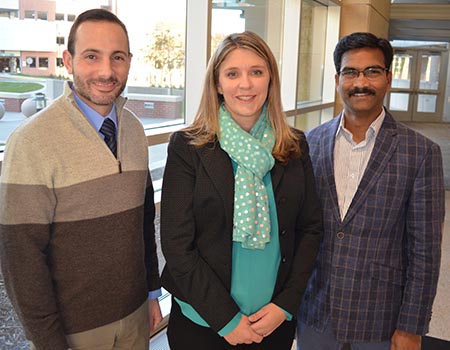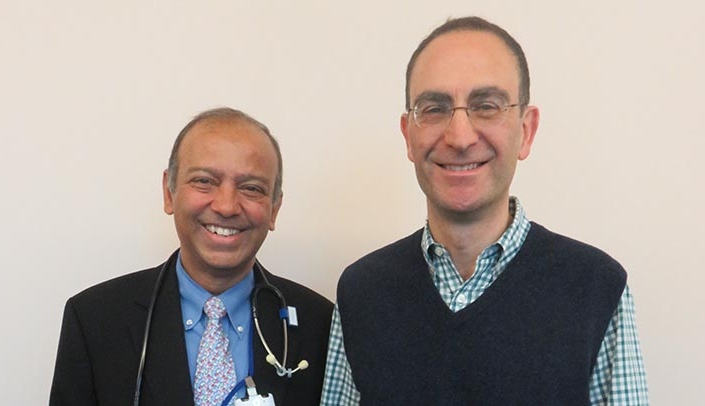Children’s Hospital & Medical Center and UNMC will take part in one of the nation’s first large-scale trials of clinical whole-genome sequencing (cWGS) in the neonatal and pediatric intensive care unit (NICU and PICU) environments.
Proof of concept
Currently, the cWGS test is not generally covered by insurance, but this trial may provide “proof of concept” that will hopefully allow coverage in the future, Dr. Brunelli said. There will be no cost to families participating in the trials, which are sponsored by Illumina.
“Employing cWGS early in the diagnostic process can help clinicians identify causative genetic variants and chromosomal abnormalities of newborns and infants quickly,” said Ryan Taft, senior director for scientific research with Illumina. “This study has the potential to show that a rapid diagnosis by whole genome sequencing can guide precision care and benefit the lives of those affected by a genetic disease.”
The primary aim of the study is to evaluate whether the clinical management of acutely ill newborns suspected for having a genetic condition is altered with cWGS.
Whole-genome sequencing is the most comprehensive method for analyzing the genome, which has been instrumental in identifying inherited disorders, characterizing the mutations that drive cancer progression, and tracking disease outbreaks.
To learn more about the clinical trial, click here.
Clinical WGS is a relatively new technology and still not widely available; it allows the interpretation of the complete genetic information of an individual within one to two weeks instead of the usual three months that is currently required for these test results to be returned, according to Luca Brunelli, M.D., Ph.D., neonatologist at Children’s Hospital & Medical Center and an associate professor of pediatrics-neonatology and genetics, cell biology and anatomy in the UNMC College of Medicine.
“Genetics is changing the paradigm for the treatment of newborns,” Dr. Brunelli said. “In the next 10 years, we will see a dramatic shift in the implementation of precision neonatal medicine, coupled with improvements in areas such as ventilation, nutrition and pharmacogenomics.”
Children’s is home to a Level IV Regional NICU, the most advanced level of neonatal care available. The NICU and PICU teams at Children’s also are recipients of the Gold Beacon Award from the American Association of Critical Care Nurses, an honor recognizing excellent patient outcomes and superior care.
“We are the only site in the Midwest for this exciting trial,” Dr. Brunelli said. “I am confident this will make a difference and allow us to improve health care for newborns here in Omaha and the region.”
 |
From left, UNMC’s Omar Rahman, M.D., Jennifer Sanmann, Ph.D., and Babu Guda, Ph.D. |
“In the NICU, babies are waiting for physicians to make the right decisions, and time is of the essence,” said Babu Guda, Ph.D., chief bioinformatics and research computing officer at UNMC. “So if you can reduce the time from days to hours, that is the key. Right now, the time lapse from collecting the sample to getting the genetic information is approximately three months. Our goal is to reduce these months to days, and that is the main technological highlight of this project.”
Prior to joining Children’s and UNMC, Dr. Brunelli was a neonatologist at the University of Utah School of Medicine and Primary Children’s Hospital in Salt Lake City. While at the University of Utah, he was involved in a study of next-generation sequencing and acutely ill infants and has published research regarding these efforts.
“We had exciting results,” he said. “Out of 12 infants, we arrived at a diagnosis in eight, for whom a diagnosis would have been lacking with a conventional approach.”
Moreover, Dr. Guda pointed out that Children’s and UNMC already have several pieces in place, from a Clinical Laboratory Improvement Amendments (CLIA)-certified lab at MMI for sequencing to a robust bioinformatics infrastructure to rapidly analyze the data needed to institute the technology on a permanent basis following the trial.
